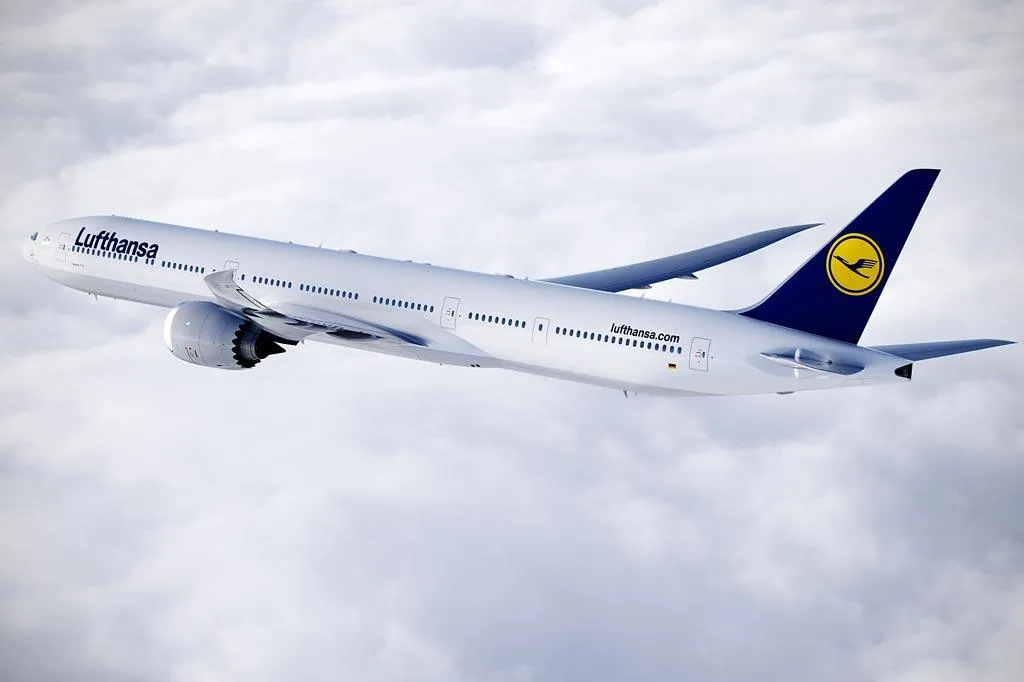
Boeing's 777 is the first widebody to sell over 2,000
Jan 07, 2019

The Boeing 777 made history as the first widebody aircraft to surpass 2,000 sales, a remarkable milestone that underscores its popularity and reliability in commercial aviation. Launched in the mid-1990s, the 777 was designed for long-haul flights and has become a favorite among airlines for its fuel efficiency, spacious cabin, and advanced technology. Its twin-engine design allows for lower operational costs while maintaining performance, making it a preferred choice for both operators and passengers. The aircraft has undergone several upgrades, including the introduction of the 777X, ensuring its continued relevance in the evolving aviation landscape.
The Milestone Achievement of Boeing's 777
The Boeing 777 has set a remarkable record in the aviation industry by becoming the first widebody aircraft to sell over 2,000 units. This incredible feat not only signifies the aircraft's popularity but also its importance in commercial aviation. The 777 has transformed long-haul travel, offering airlines and passengers a unique blend of efficiency, comfort, and reliability. With its advanced technology and design, the Boeing 777 has redefined what a widebody aircraft can do.
Key Features of the Boeing 777
The success of the Boeing 777 can be attributed to several key features that make it stand out in the crowded market of widebody aircraft. Here are some of the most significant attributes:
- Fuel Efficiency: The Boeing 777 is designed to be highly fuel-efficient, helping airlines reduce operational costs. Its advanced engines and aerodynamic design contribute to lower fuel consumption.
- Comfortable Cabin: Passengers enjoy a spacious cabin with modern amenities, including larger windows and improved air quality. The 777's interior design prioritizes passenger comfort, making long-haul flights more enjoyable.
- Advanced Technology: With cutting-edge avionics and systems, the Boeing 777 incorporates the latest technology to enhance safety and performance. This includes fly-by-wire technology and advanced navigation systems.
The Global Impact of the Boeing 777
Since its introduction, the Boeing 777 has had a profound impact on the global aviation landscape. Airlines around the world have embraced this aircraft for its versatility and performance. Here's a look at some of the benefits it has brought to the industry:
| Benefit | Description |
|---|---|
| Increased Capacity: | The Boeing 777 can accommodate a significant number of passengers, making it ideal for high-demand routes. |
| Long Range: | This aircraft can fly long distances without needing to refuel, opening up new routes for airlines. |
| Operational Flexibility: | Airlines can operate the 777 on a variety of missions, from regional to intercontinental flights. |
Market Demand and Sales Success
The demand for the Boeing 777 has been consistently strong, resulting in impressive sales figures. The aircraft's ability to meet the evolving needs of airlines and passengers has made it a preferred choice. Some factors contributing to its sales success include:
- Versatile Variants: The Boeing 777 is available in multiple variants, including the 777-200, 777-300, and the latest 777X. Each variant caters to different market requirements, enhancing its appeal.
- Strong Brand Reputation: Boeing's long-standing reputation for quality and innovation has bolstered the 777's market position, instilling confidence in airlines and operators.
- Global Fleet Growth: As air travel continues to grow, the demand for widebody aircraft like the 777 has surged, leading to increased sales.
Charting the Success of Boeing's 777
The following chart illustrates the sales trajectory of the Boeing 777 over the years, highlighting its significant milestones:
| Year | Total Sales |
|---|---|
| 1995 | 0 |
| 2000 | 250 |
| 2005 | 800 |
| 2010 | 1,200 |
| 2015 | 1,800 |
| 2020 | 2,000 |
The Future of the Boeing 777
As the aviation industry continues to evolve, the Boeing 777 remains a vital player. The introduction of the 777X variant showcases Boeing's commitment to innovation and sustainability. With its new technologies, including more fuel-efficient engines and improved aerodynamics, the 777X is poised to meet the challenges of modern air travel.
Moreover, as airlines focus on reducing their carbon footprint, the Boeing 777's efficiency will be a significant selling point. The continued investment in this aircraft model ensures that it will remain a preferred choice for airlines around the globe.
Conclusion
Boeing's 777 has achieved a historic milestone by becoming the first widebody aircraft to sell over 2,000 units. With its unmatched blend of efficiency, comfort, and advanced technology, the 777 has transformed the aviation industry and will continue to play a crucial role in shaping the future of air travel. As demand for air travel grows, the Boeing 777 will remain a trusted workhorse for airlines worldwide.
Related Articles

Explore Thailand: The Best Islands to Visit for Paradise, Adventure, and Relaxation

The Ultimate Guide to the Best Islands in Thailand for Your Next Getaway

Do babies need passports? How to get a passport for a newborn

How to get a U.S. passport fast: here’s how to expedite the process

What is Mobile Passport Control: 5 reasons why you should use it

SENTRI vs. Global Entry: A detailed guide

Do you need a passport to go to the Bahamas? Let’s find out

Do you need a passport to go to Mexico? A detailed guide

Do you need a passport to go to Canada? We got the answer

Do You Need a Passport for a Cruise: An Essential Travel Guide

Booster Seat Requirements: All the Rules to Follow in Your Rental Car

What Are the World’s Most Powerful Passports, and How Does Yours Rank?

How to Take a Passport Photo at Home: A Helpful Guide

You've got to have heart! Southwest's new livery

Your opinion: Should water be free on low cost carriers?

Young women bolder than guys as solo travellers
